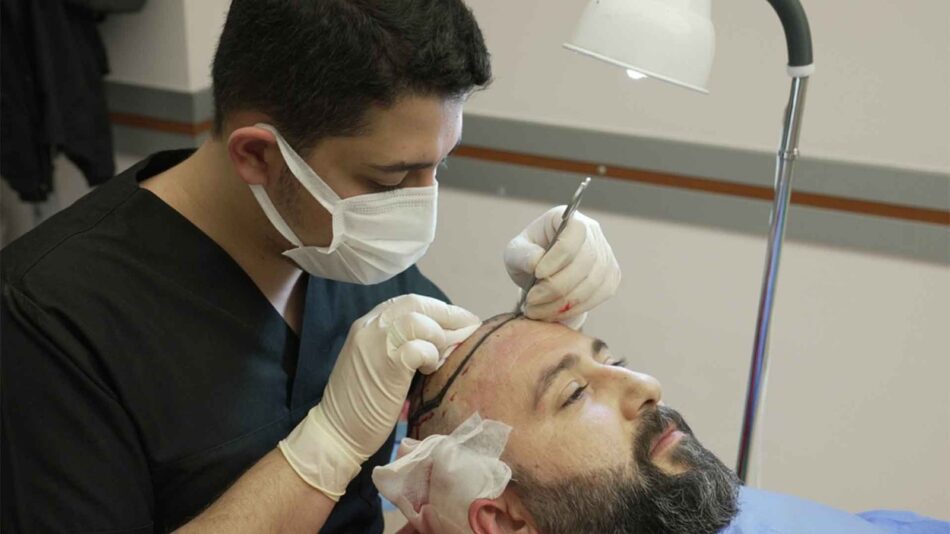A Hair Transplant in Dubai is widely regarded as a safe and effective solution for hair loss, but like any surgical procedure, it comes with some potential risks. Understanding these risks and knowing how to prevent complications ensures a smooth recovery and optimal results. Dubai’s advanced medical facilities, experienced surgeons, and strict hygiene standards make it one of the safest destinations for hair restoration.
This guide outlines the common risks, how to avoid them, and tips for a successful Hair Transplant in Dubai.
Common Risks Associated with Hair Transplant
Although rare, potential risks may include:
- Infection – Bacteria can infect the scalp if proper hygiene is not maintained.
- Bleeding – Some bleeding is normal, but excessive bleeding can occur in certain cases.
- Scarring – FUT may leave a linear scar, while FUE leaves tiny dot-like scars.
- Swelling and Redness – Mild swelling around the forehead and eyes can occur.
- Shock Loss – Temporary shedding of transplanted or existing hair.
- Poor Growth or Uneven Density – Improper graft placement can lead to patchy results.
- Numbness or Tingling – Temporary nerve irritation may cause mild numbness in the donor or recipient area.
Understanding these risks helps patients take preventive steps and communicate effectively with their surgeon.
How to Avoid Complications Before Surgery
Preparation is key to minimizing risks. Consider the following tips before undergoing a Hair Transplant in Dubai:
- Choose an Experienced Surgeon: Ensure the clinic has certified professionals with a proven track record.
- Medical Consultation: Discuss your medical history, medications, and allergies.
- Avoid Blood Thinners: Stop aspirin, certain supplements, and anti-inflammatory drugs as advised by your surgeon.
- Quit Smoking and Alcohol: At least two weeks before surgery to improve healing and blood circulation.
- Healthy Lifestyle: Eat a balanced diet and stay hydrated to support recovery.
Dubai clinics prioritize patient safety and will provide pre-surgery instructions to minimize complications.
During Surgery: Minimizing Risks
During your Hair Transplant in Dubai, the surgical team follows strict protocols to reduce risks:
- Sterile Environment: Clinics maintain high hygiene standards to prevent infection.
- Local Anesthesia: Reduces pain and prevents complications related to general anesthesia.
- Precision Techniques: Using FUE, DHI, or FUT methods ensures proper graft extraction and placement.
- Controlled Procedure Time: Proper pacing avoids fatigue and errors during surgery.
Selecting a professional clinic ensures that all procedures are performed under safe and controlled conditions.
Post-Procedure Care to Avoid Complications
The recovery period is crucial for the success of a Hair Transplant in Dubai. Key aftercare tips include:
- Avoid Touching or Scratching the Scalp: Prevents infection and protects grafts.
- Follow Medication Instructions: Take prescribed antibiotics and anti-inflammatory medications.
- Gentle Hair Washing: Use mild shampoo as recommended by your surgeon.
- Protect from Sun Exposure: Direct sunlight can harm healing follicles.
- Avoid Physical Strain: Refrain from heavy exercise, swimming, or saunas for 10–14 days.
Following these steps significantly reduces the risk of infection, scarring, and poor graft survival.
Recognizing Warning Signs
Even with proper care, patients should monitor for signs of complications:
- Severe pain that doesn’t improve with medication
- Excessive bleeding or pus from donor or recipient areas
- Persistent swelling or redness beyond the first week
- Fever or signs of systemic infection
If any of these occur, contact your surgeon immediately for guidance. Early intervention prevents minor issues from becoming serious complications.
Choosing the Right Technique
Dubai clinics offer advanced techniques to minimize risks:
- FUE Hair Transplant: Minimally invasive, faster recovery, and less noticeable scarring.
- DHI (Direct Hair Implantation): Uses implanter pens for precise graft placement and better survival rates.
- FUT (Strip Method): Suitable for patients needing a large number of grafts but requires careful donor area management.
Discuss with your surgeon which method suits your hair loss pattern and desired results.
Why Dubai Is a Safe Destination for Hair Transplant
Dubai has become a global hub for hair restoration due to:
- Highly skilled, internationally trained surgeons
- Cutting-edge technology for safe and precise procedures
- Strict clinic hygiene and safety standards
- Comprehensive patient support before and after surgery
This combination ensures that a Hair Transplant in Dubai is both safe and highly effective.
Long-Term Success Tips
To ensure the best long-term results and avoid complications:
- Maintain a healthy lifestyle with proper nutrition
- Use recommended hair care products
- Attend follow-up appointments for progress monitoring
- Avoid harsh chemicals or aggressive styling that can damage new hair
By following these tips, patients can enjoy natural-looking, permanent results from their hair transplant.
Conclusion
While a Hair Transplant in Dubai is generally safe, understanding the potential risks and taking preventive measures ensures optimal results. Choosing an experienced surgeon, following pre- and post-procedure instructions, and maintaining proper care are essential for a successful hair restoration journey.
For expert guidance and a safe, professional hair transplant experience, visit Tajmeels Clinic — your trusted partner for advanced hair restoration and aesthetic treatments in Dubai.
 WhatsApp Us Now
WhatsApp Us Now





